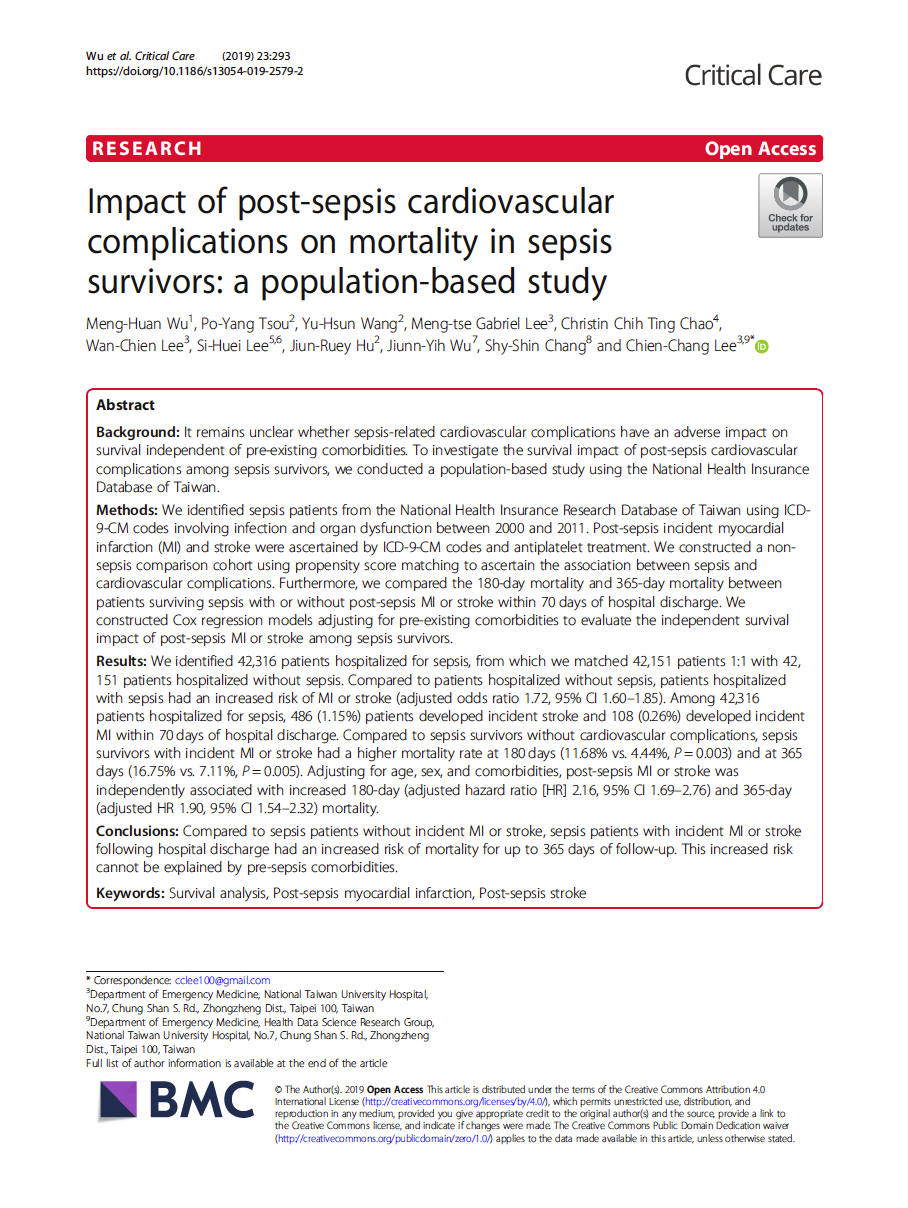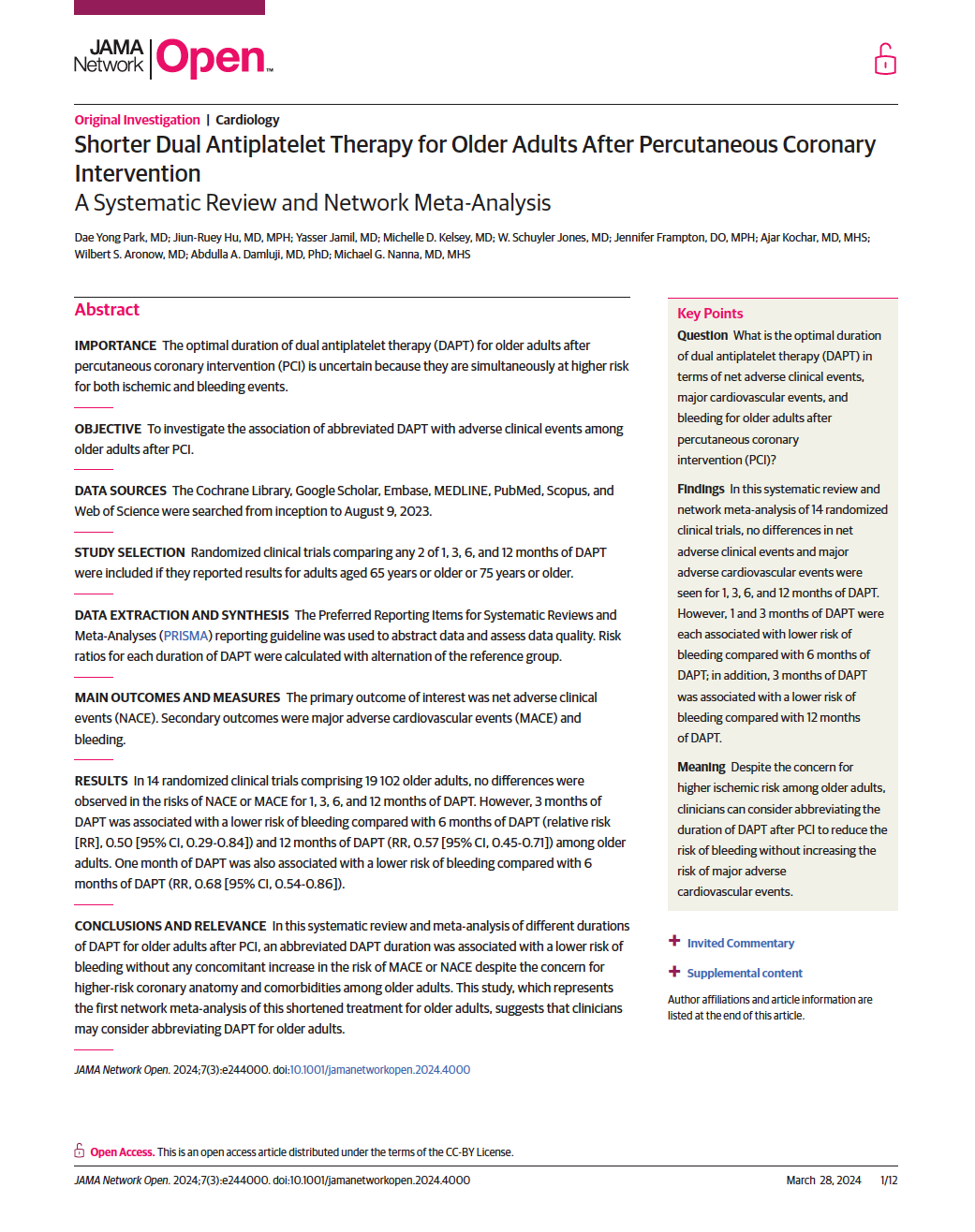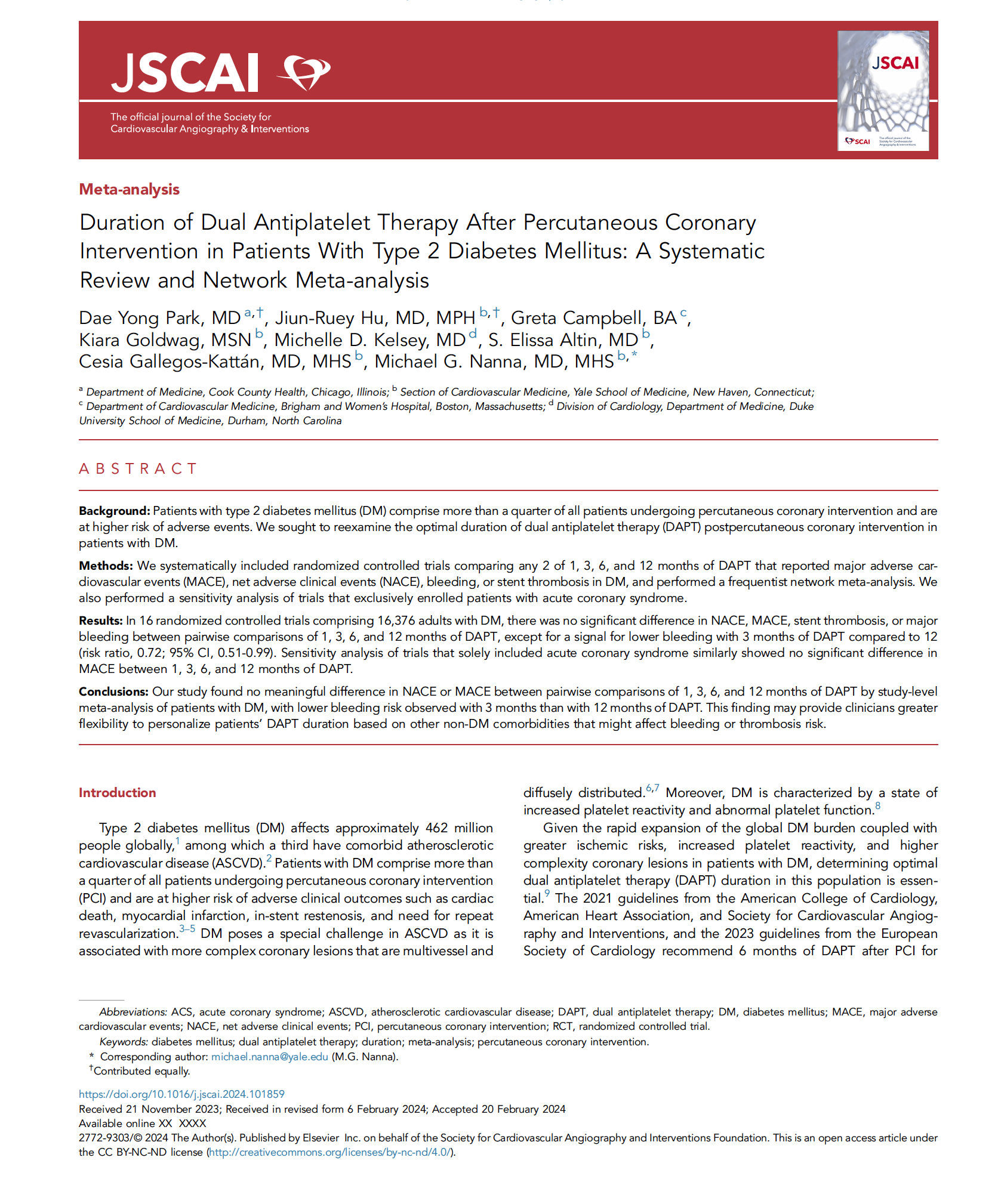📝 Abstract
Background
It remains unclear whether sepsis-related cardiovascular complications have an adverse impact on survival independent of pre-existing comorbidities. To investigate the survival impact of post-sepsis cardiovascular complications among sepsis survivors, we conducted a population-based study using the National Health Insurance Database of Taiwan.
Methods
We identified sepsis patients from the National Health Insurance Research Database of Taiwan using ICD-9-CM codes involving infection and organ dysfunction between 2000 and 2011. Post-sepsis incident myocardial infarction (MI) and stroke were ascertained by ICD-9-CM codes and antiplatelet treatment. We constructed a non-sepsis comparison cohort using propensity score matching to ascertain the association between sepsis and cardiovascular complications. Furthermore, we compared the 180-day mortality and 365-day mortality between patients surviving sepsis with or without post-sepsis MI or stroke within 70 days of hospital discharge. We constructed Cox regression models adjusting for pre-existing comorbidities to evaluate the independent survival impact of post-sepsis MI or stroke among sepsis survivors.
Results
We identified 42,316 patients hospitalized for sepsis, from which we matched 42,151 patients 1:1 with 42,151 patients hospitalized without sepsis. Compared to patients hospitalized without sepsis, patients hospitalized with sepsis had an increased risk of MI or stroke (adjusted odds ratio 1.72, 95% CI 1.60–1.85). Among 42,316 patients hospitalized for sepsis, 486 (1.15%) patients developed incident stroke and 108 (0.26%) developed incident MI within 70 days of hospital discharge. Compared to sepsis survivors without cardiovascular complications, sepsis survivors with incident MI or stroke had a higher mortality rate at 180 days (11.68% vs. 4.44%, P = 0.003) and at 365 days (16.75% vs. 7.11%, P = 0.005). Adjusting for age, sex, and comorbidities, post-sepsis MI or stroke was independently associated with increased 180-day (adjusted hazard ratio [HR] 2.16, 95% CI 1.69–2.76) and 365-day (adjusted HR 1.90, 95% CI 1.54–2.32) mortality.
Conclusions
Compared to sepsis patients without incident MI or stroke, sepsis patients with incident MI or stroke following hospital discharge had an increased risk of mortality for up to 365 days of follow-up. This increased risk cannot be explained by pre-sepsis comorbidities.


